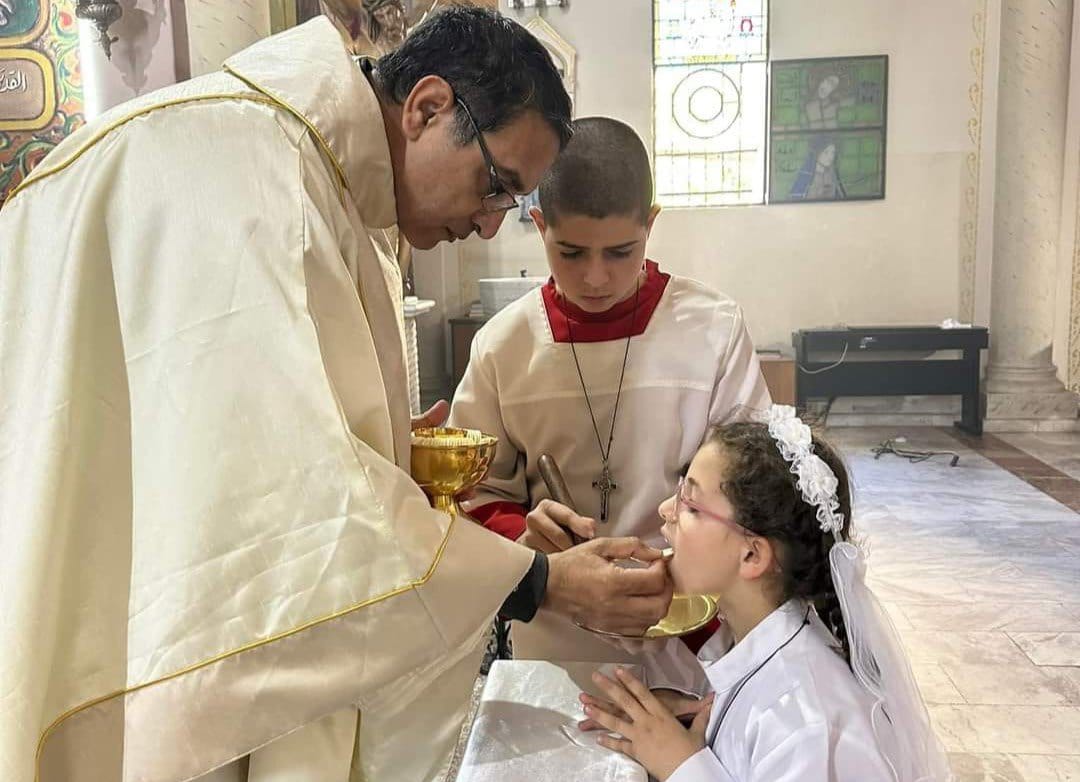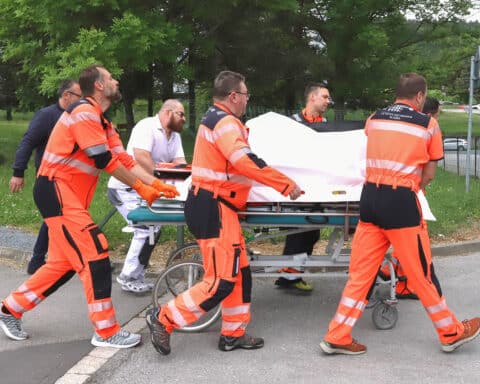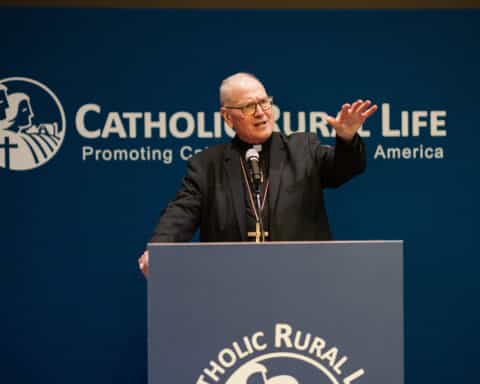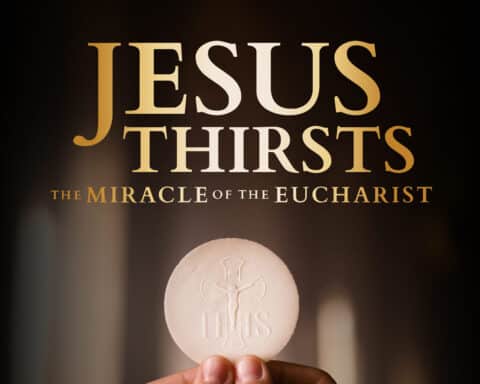(OSV News) — In the shadow of darkness, eight children in Gaza City beamed with joy as they received their first Communion.
As the world marked 100 days since the Hamas militants attacks that unleashed hell in the Holy Land, images of the children from Holy Family Parish — the only Catholic parish in the Gaza Strip — dressed in white albs to receive the sacrament were a stark and welcome contrast in a land that has had very little reason to smile since Oct. 7.
Across the border in Israel, the families of those hostages still held by Hamas and other groups marked the poignant milestone of 100 days without their loved ones with a vigil in Tel Aviv.
As he has done from the beginning of the current conflict, the pope used an appearance on Italian television Jan. 14 to plead for an end to violence. “It’s true that making peace is risky, but war is riskier,” he told the show “Che tempo che fa.”

The pope’s solidarity and interventions are reassuring for the Christian community, but as war continues to rage with Israel vowing not to stop until Hamas is eradicated, Church leaders in the region feel increasingly helpless.
Custos of the holy places expresses frustration
Speaking to OSV News from Jerusalem, Franciscan Father Francesco Patton, the custos, or guardian, of the holy places, was downbeat.
“I feel very sad and frustrated, because at this moment it seems impossible to do something for the civilian population of Gaza — particularly for the children. But it is impossible also to obtain that the Israeli hostages will be freed,” he said.
“We are praying every day for peace, for reconciliation, for a diplomatic and political solution of this terrible situation,” he told OSV News from St. Saviour’s Monastery in Jerusalem’s Old City, just a few minutes’ walk from the site of Christ’s crucifixion and resurrection — the Church of the Holy Sepulcher.
Before the war there were an estimated 1,200 Christians in Gaza, most observers say the number has dropped now to around 800 with those holding dual nationalities able to flee via Egypt. Most of the Christians are Greek Orthodox, but there also is the Catholic community gathered around Holy Family Parish.
Father Patton described their witness amid the war as “a true miracle.”
“All of them know each other, and are waiting for the end of the war. They cannot leave the Gaza Strip and they need food, water, medicines, fuel — everything,” he said.
“They are giving to us a strong testimony of faith, because they in practice live inside the church, praying, helping each other and keeping their hearts free from hatred.
“And this for me is a true miracle,” according to the Italian friar, who is the 168th custodian of the holy places since St. Francis first brought the order there in the 13th century.
International Court of Justice considers genocide charge
As the war passed the grim milestone of 100 days since the Hamas attacks that killed approximately 1,200 Israelis in their homes and at a music festival, the Hamas-controlled health ministry in Gaza said the death toll in the strip stood at 24,100 on Jan. 15.
The International Court of Justice in The Hague is currently considering preliminary findings in a case taken by South Africa against Israel alleging genocide. Israel strongly refutes this charge.

Meanwhile, protesters packed what has become known as “Hostages Square” in Tel Aviv to demand the release of the 136 Israelis still held in Gaza with chants of “bring them home” ringing out as President Isaac Herzog addressed the crowd and while businesses nationwide went on strike for 100 minutes.
“One hundred days of isolation. One hundred days in which hostages — babies, children, elderly, women and men, wounded and sick — are held by despicable Hamas terrorists,” the president said, with some present booing his remarks, apparently frustrated about the lack of a deal to free remaining hostages.
Life in the West Bank is ‘frozen’
Many of the holy sites in the Holy Land are in the region known as the West Bank which includes Bethlehem, Jericho and the site where Jesus was baptized on the River Jordan.
While almost 62 miles from Gaza, heightened security measures have made life difficult for the Palestinian residents — many of whom used to cross the border to Israel every day for work.
Father Patton described the situation in the West Bank as “frozen.”
“You cannot go in and out like before on Oct. 7,” he said. This means that for almost all those who were working in Israel, it is now impossible to continue.

“For the Christian community of Bethlehem the situation is tragic, because our Christians usually worked in the tourism industry and (with) pilgrimages, but now all the hotels are closed, the shops are closed, and the pilgrims are not coming anymore,” he lamented.
“So, the situation in the West Bank is explosive because of restrictions on freedom, poverty, violence and desperation” Father Patton told OSV News.
Israeli army raids and attacks by settlers have killed at least 341 people in the West Bank since Oct. 7, according to an AFP tally based on sources on both sides. Israel says it is targeting militants, but civilians have also lost their lives.
When the war ends, as all wars do, Father Patton insists that “the real challenge will not be to rebuild houses, but to rebuild relations.
“The long-term consequences will be many and very difficult to solve, but I think that this is the last opportunity to solve, politically, the Palestinian-Israeli conflict and give a political international recognition to the state of Palestine,” he said.
Father Patton is optimistic that such a move is key to a just and lasting peace.
“If this will happen, it will be possible in a long-term process also to reestablish more or less normal relations between the different ethnic and religious people living in the Holy Land,” he told OSV News.





